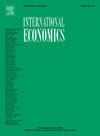这会造成伤害:天气异常、供应链压力和通货膨胀
引用次数: 0
摘要
随着气候变化的加速,极端天气事件的频率和严重程度预计将进一步恶化,并对世界各地的生态系统、有形基础设施和经济活动造成更大的不利影响。本文研究了天气异常如何影响全球供应链和通胀动态。我们利用 1997-2021 年间六个大型多元化经济体(中国、欧元区、日本、韩国、英国和美国)的月度数据,建立了一个结构性向量自回归模型,并证明天气异常会扰乱供应链,进而导致通胀压力。我们的结果基于月度数据,并对其他估算方法具有稳健性,表明这些影响因国家而异,取决于天气冲击的严重程度和供应链中断的脆弱性。随着气候变化的加速,天气冲击对供应链和通胀动态的影响可能会变得更加明显,而气候变化可能会产生异质性影响。这些发现具有重要的政策含义。中央银行应考虑天气异常对供应链和通胀动态的影响,以防止固化的第二轮效应和通胀预期的去锚化。然而,更直接的是,政府可以为适应气候变化投入更多资金,以加强关键基础设施,从而最大限度地减少供应链中断。本文章由计算机程序翻译,如有差异,请以英文原文为准。
This is going to hurt: Weather anomalies, supply chain pressures and inflation
As climate change accelerates, the frequency and severity of extreme weather events are expected to worsen and have greater adverse consequences for ecosystems, physical infrastructure, and economic activity across the world. This paper investigates how weather anomalies affect global supply chains and inflation dynamics. Using monthly data for six large and well-diversified economies (China, the Euro area, Japan, Korea, the United Kingdom, and the United States) over the period 1997–2021, we implement a structural vector autoregressive model and document that weather anomalies could disrupt supply chains and subsequently lead to inflationary pressures. Our results—based on the monthly data and robust to alternative estimation methodologies—show that these effects vary across countries, depending on the severity of weather shocks and vulnerability to supply chain disruptions. The impact of weather shocks on supply chains and inflation dynamics is likely to become more pronounced with accelerating climate change that can have heterogeneous effects. These findings have important policy implications. Central bankers should consider the impact of weather anomalies on supply chains and inflation dynamics to prevent entrenching second-round effects and de-anchoring of inflation expectations. More directly, however, governments can invest more for climate change adaptation to strengthen critical infrastructure and thereby minimize supply chain disruptions.
求助全文
通过发布文献求助,成功后即可免费获取论文全文。
去求助
来源期刊

International Economics
Economics, Econometrics and Finance-Economics, Econometrics and Finance (all)
CiteScore
6.30
自引率
0.00%
发文量
74
审稿时长
71 days
 求助内容:
求助内容: 应助结果提醒方式:
应助结果提醒方式:


